Understanding rounding Normal Numbers Worksheets
5 filtered results
-
From - To
Discover our comprehensive "Understanding Rounding Normal Numbers Worksheets" designed for young learners to develop essential math skills. These engaging, printable resources focus on rounding numbers to the nearest ten, hundred, or thousand with clear instructions and practical examples. Perfect for reinforcing classroom lessons, our worksheets help students grasp key concepts while improving their number sense and problem-solving abilities. Ideal for homework or extra practice, these materials foster confidence and competence in math. Visit Kids Academy to explore our full collection and support your child’s journey towards mastering rounding numbers effortlessly.
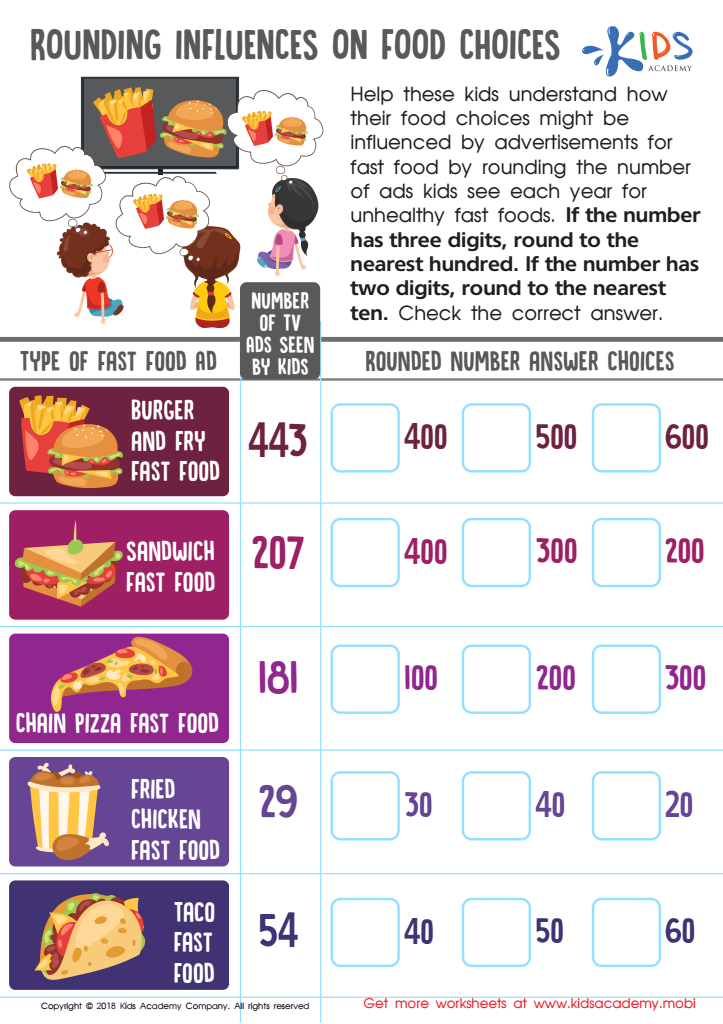

Rounding Influences Food Choices Worksheet
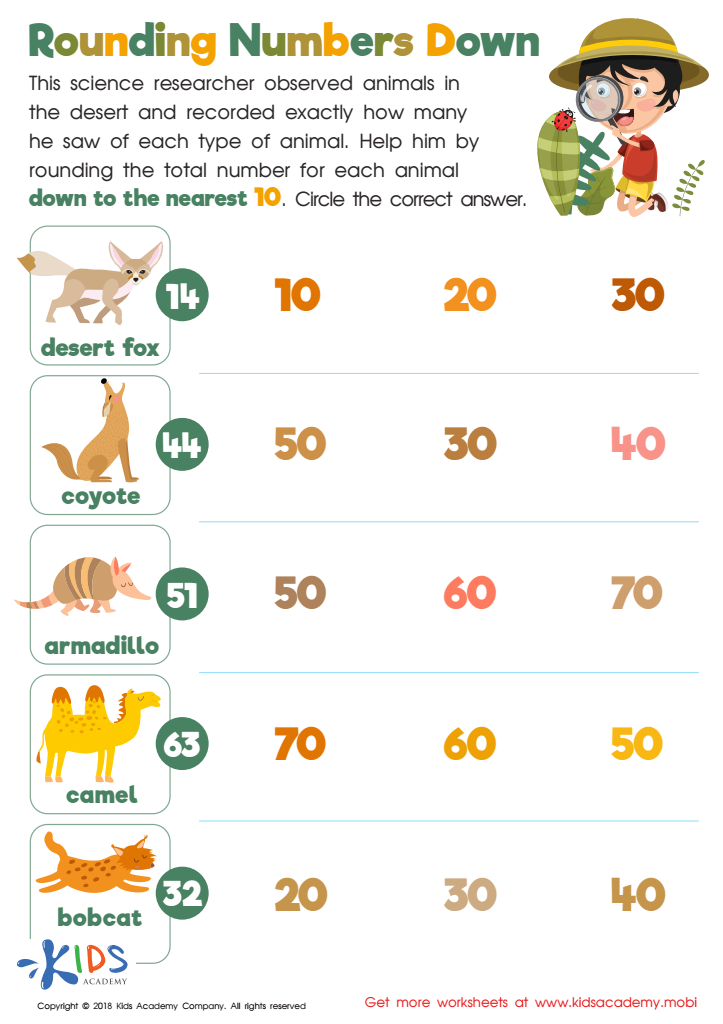

Rounding Numbers Down Worksheet
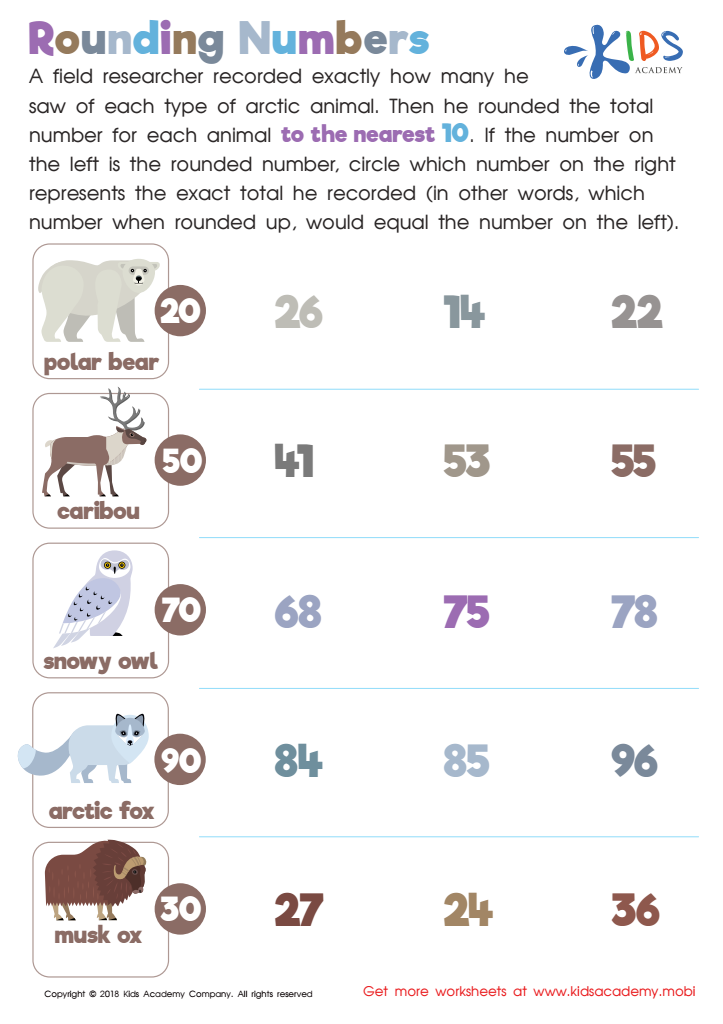

Rounding Numbers Worksheet
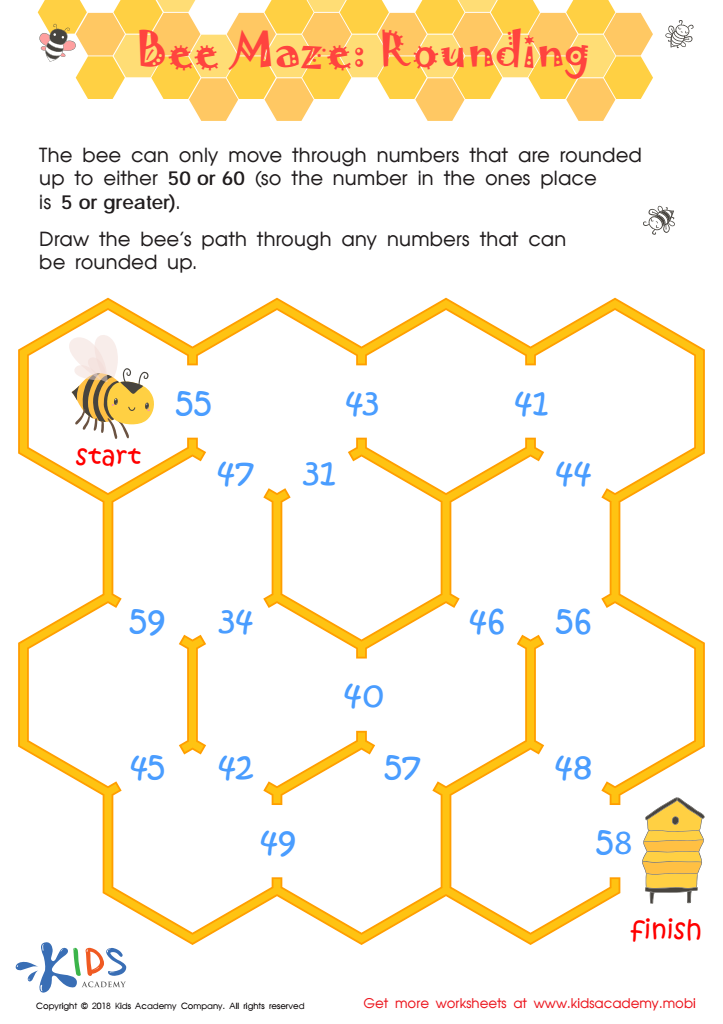

Bee Maze Rounding Worksheet
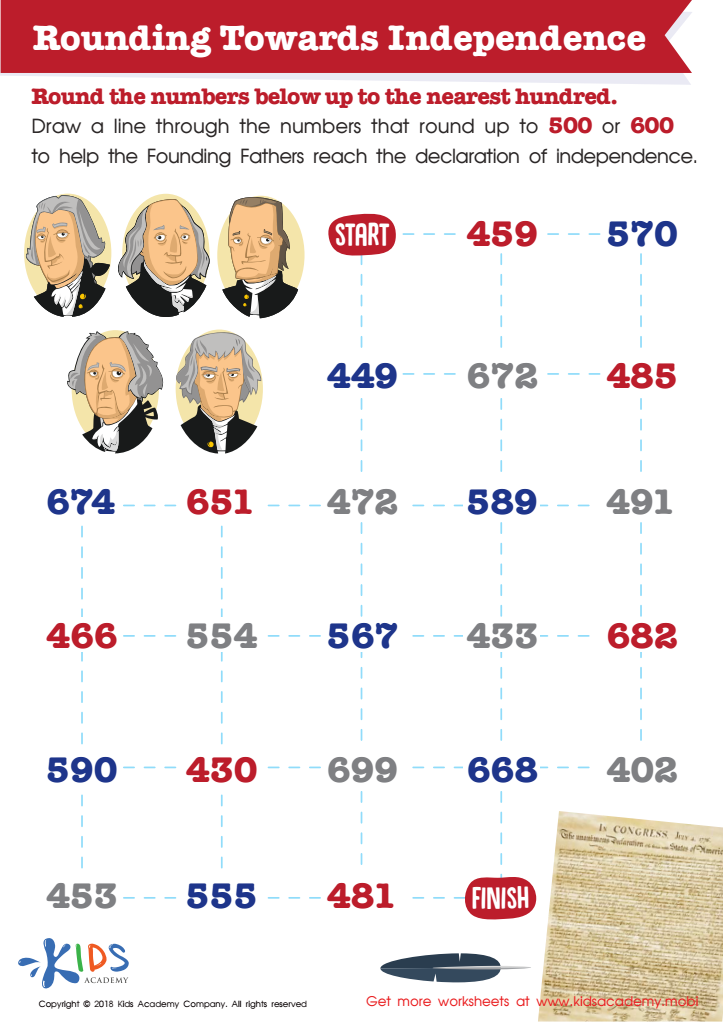

Rounding Towards Independence Worksheet
Understanding rounding normal numbers is a fundamental skill that forms the foundation for more advanced mathematical concepts. For parents and teachers, ensuring that children grasp this concept can significantly impact their overall mathematical proficiency and daily life skills.
Rounding helps children estimate and solve problems more quickly and accurately, enhancing their number sense, which is crucial for performing mental math. This in turn boosts their confidence in handling larger, more complex numbers and arithmetic operations in higher grades. When children can round numbers comfortably, they are better prepared to understand concepts like averages, percentages, and complex algorithms in later years.
From a practical standpoint, rounding facilitates everyday decision-making. For instance, learning to round helps children better understand money, allowing them to estimate costs when shopping or budgeting their allowance. It aids in measuring and comparing quantities when cooking, playing games, or conducting simple experiments.
Additionally, cultivating these skills early can advance logical thinking and problem-solving abilities. Rounding teaches time management, as estimating time for tasks or travel becomes easier. Ultimately, by comprehending rounding, children not only enhance their academic skills but also develop practical life skills that foster independence and critical thinking. Hence, both parents and teachers play a crucial role in nurturing this essential aspect of numerical competence.
 Assign to My Students
Assign to My Students















